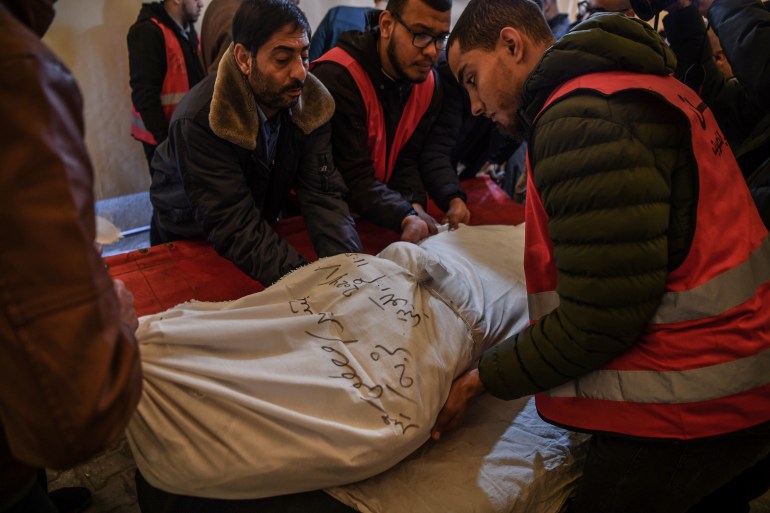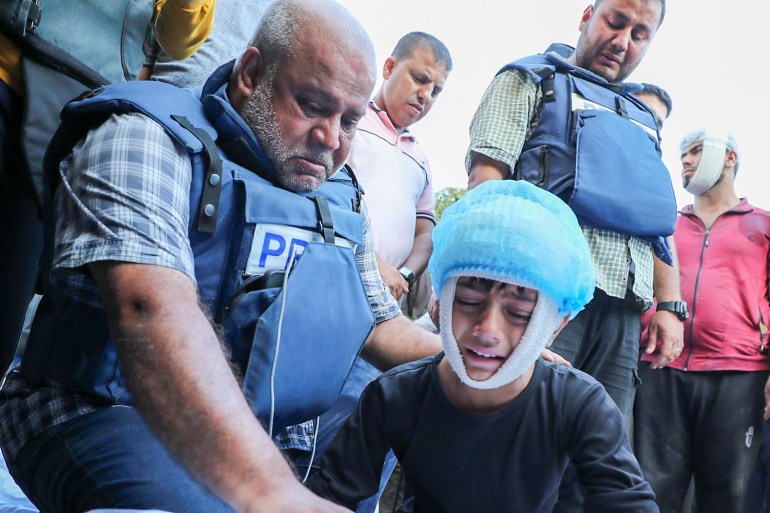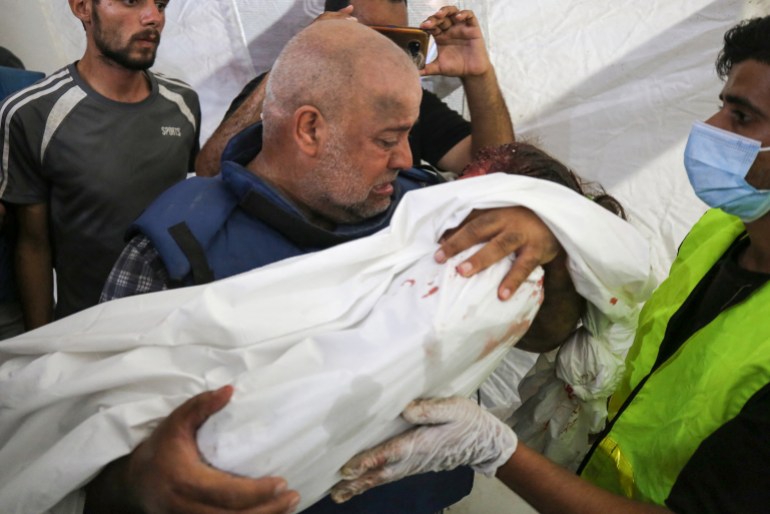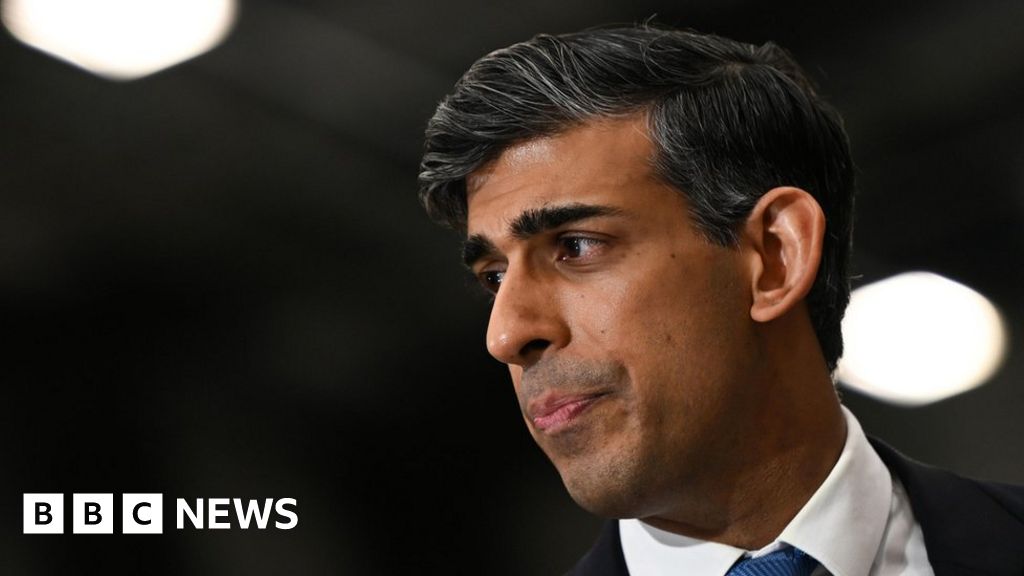Hamza Dahdouh, the eldest son of Al Jazeera's Gaza bureau chief Wael Dahdouh, was martyred in an Israeli missile strike on the western part of the city of Khan Yunis in Gaza.
Journalist Mustafa Thuraya was also killed in the attack, when the car they were traveling in near Al-Mawasi, a supposedly safe area towards the southwest, was hit by a missile. A third passenger, Hazem Rajab, was seriously injured.
According to reports by Al Jazeera correspondents, Hamza and Mustafa's car was targeted while they were trying to conduct interviews with civilians displaced by the previous bombing.

Hamza, 27, was a journalist like his father. Mustafa was also in his twenties.
Speaking from the cemetery where his son was buried, Wael sounded subdued but resigned, saying he was one of the crowds of people in Gaza today who bid a bitter farewell to their loved ones every day.
He pledged to stay on his path to show the world what is happening in Gaza, despite the pain of one loss after another.
He said: “Hamza was everything to me, the eldest son, he was the soul of my soul… These are tears of separation and loss, tears of humanity.”

Al Jazeera Media Network strongly condemned the attack, and added: “The assassination of Mustafa and Hamza… while they were on their way to carry out their duty in the Gaza Strip, reaffirms the necessity of taking the necessary legal measures immediately against the occupation forces and ensuring no impunity.”
In its response to the news, the Gaza Media Office condemned the killing of the journalists, denouncing “in the strongest terms this heinous crime.”
Constant pain
Hamza was very attached to his family, and was shocked when he heard on October 25 that an Israeli raid had hit the house where his family was taking refuge in the Nuseirat refugee camp.
He soon discovered that his mother Amna, his brother Mahmoud, 15, his sister Sham, 7, and his nephew Adam, 1, were killed in the Israeli attack. It seemed that his sadness after their loss encouraged him to work harder in covering the war in Gaza, according to his colleague.

As news of Hamza's killing spread, his wife of one year rushed to the cemetery, as did his surviving brothers, to have a last look before burying him.
Wael stood next to his son's head, consoling the rest of his family as they tried to comprehend the sudden loss.
His composure and strength made Wael Dahdoud much more than the director of the Al Jazeera Al Arabiya bureau in Gaza. He is the face of the channel's coverage of Israel's war on Gaza and a symbol of the steadfastness of the people of Gaza.
When he lost his wife, son, daughter and grandson in the Israeli airstrike at the end of October, the world watched in horror as he ran to the hospital where the bodies of his four loved ones were taken.

After bidding an emotional farewell to his children, grandson and partner, he also seemed more determined than ever to do his job.
Then in mid-December, he was severely injured in an attack that killed his colleague Samer Abu Daqqa, but he went out again to cover the news soon after.
The Palestinian Journalists Syndicate documented the killing of 102 journalists and the injury of 71 others at the hands of Israeli forces since the start of hostilities in October.
The list of Al Jazeera journalists and staff who have lost family members or died themselves is also growing.
In December, Anas Al-Sharif lost his father in an Israeli airstrike that hit his family home in Jabalia.
A few days ago, on December 6, Al Jazeera Al Arabiya correspondent Moamen Al-Sharafi killed 22 members of his family when an Israeli attack hit the house where they were sheltering in the Jabalia refugee camp.
In late October, radio engineer Muhammad Abu Al-Qumsan lost 19 members of his family, including his father and two sisters, during Israeli air strikes on the same refugee camp.

“Coffee trailblazer. Certified pop culture lover. Infuriatingly humble gamer.”




